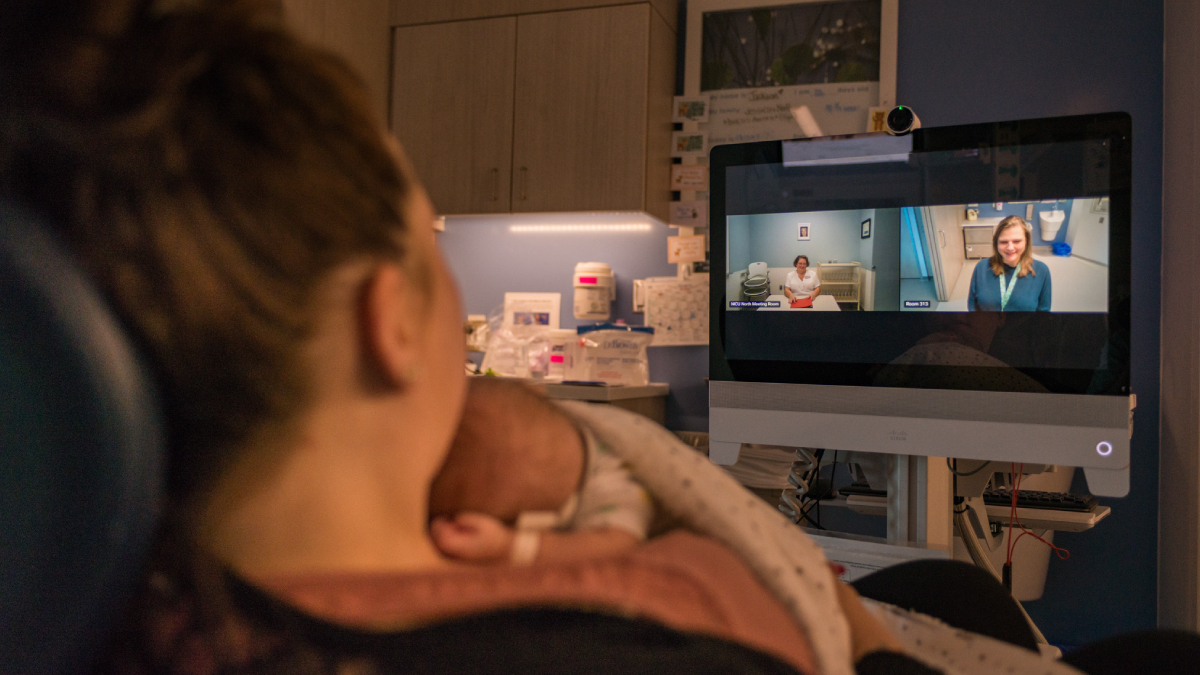NEW ORLEANS, (HIMSS 2007) - February 27, 2007 - In just over a decade the Internet has changed the way they manage their health and helped make them healthier, a sizeable group of Americans report. But they complain that physicians haven't really embraced e-Health and aren't offering the online health services that they want.
One in three Americans report that the Internet "has changed the way I go about managing and maintaining my health," according to an Illuminas study commissioned by Cisco. Sixty-two percent reported they have used online health tools and more than half, 56 percent, reported an improvement in their health management due to personal technology.
In addition, nearly one in four of Americans reported that they were a healthier person today because of the Internet. The Internet has rapidly become a primary source for health information and advice, even rivaling the family physician. When asked what sources they were likely to go for information and advice, 62 percent said their physician. However, 44 percent said medical websites and 32 percent said online search. In fact, the Internet accounted for three of the top five sources of information.
The study of 4,105 adults was commissioned on the eve of the HIMSS annual conference in New Orleans.
While many Americans said they use the Internet to manage their health, they also reported that most physicians appear slow to utilize it. Sixty-two percent said that their doctor doesn't offer Internet-based tools such as the ability to directly email them, schedule an appointment online, or check a website with information on the practice or doctors credentials. And only 27 percent responded that medical providers have fully embraced the Internet to deliver health information and services.
The survey also uncovered a significant disconnect exists regarding what online tools consumers want and what doctors are offering:
"This survey clearly shows the Internet has become an integral tool for many to manage and improve their health, but it's also obvious that we have a way to go to maximize the use of Internet tools to provide better care," said Dr. Jeffrey Rideout MD, Cisco's vice president of healthcare, Internet Business Solutions Group and chief medical director. "This is clearly a 'call to action' to the health care community. We need to overcome the obstacles to medical providers utilizing the Internet as a tool to provide better care and drive the adoption of cutting-edge services such as Internet video so that Americans can have the best possible care at their fingertips at home."
Other highlights from the Illuminas study include:
- As mentioned above, 62 percent of Americans said they have used online health tools. Here are the top five they are most likely to use those tools to do:
- Access symptoms & diagnostic information: 33 percent
- Access general wellness & fitness information: 30 percent
- Attempt to self-diagnose: 23 percent
- Manage prescriptions: 15 percent
- Health assessment to self-assess health: 15 percent
- Many Americans see high value in online health tools. Forty-seven percent said that "online tools & information empower me to better manage my health & well-being" and 43 percent said "online health information is an important part of my personal health management." Of those who said that information technology has improved their health management, 80 percent said it was due to access to information.
- Those with chronic illnesses are more likely to use the Internet for health purposes and report it has improved their ability to manage their health. Specifically, sixty-three percent of those with chronic illnesses said it improved their health management. Twenty-seven percent reported that their primary goal for using online tools was to become an "equal partner with my care providers in making my health decisions."
- Those with chronic illnesses were also more likely than others to report that the Internet had changed the way they go about managing and maintaining my health. Forty-one percent credited the Internet with changing the way they approached their health care.
- Lingering concerns remain about whether online health tools are secure. Thirty-nine percent reported that a key hurdle to using personal technology to manage their health was a concern that their private information would be released. Thirty-eight percent were concerned that their identity would be stolen or abused. And 24 percent are concerned that private medical information will be used to discriminate against them, and that concern jumps to 31 percent among those with chronic illnesses.
"Given the complexities of our health care system, it is not surprising that implementing online tools would be more challenging than other industries," said Dr. Rideout. "But it's clear that Americans utilize the technologies to manage their health care, and there is a strong desire for their health care providers to do more so as well. Cisco is committed to helping overcome these challenges and embrace the opportunities modernizing our systems can deliver so that our nation offers the best health care we can provide."
The Illuminas survey of 4,105 adults was conducted between January 29-February 14 and has a margin of error of +/-1.5%. For more information about the survey and Illuminas, please visit: http://austin.illuminas-global.com/cisco_health_management.htm.
Cisco will be highlighting several health care IT technology innovations through demonstrations and booth presentations at HIMSS. The Cisco booth is #927 and can be found in exhibitor hall D.
Cisco and Health Information Technology
Cisco is a leader in driving health information technologies to improve health care. Among its major initiatives are the following programs to advance health care through technology:
Health Care IT Adoption. Cisco joined with Intel Corporation and Oracle last year to form a consortium of leading technology companies, medical groups and independent practice associations (IPAs) to reward doctors that use technology to share information and improve patient care. The consortium, called the Silicon Valley Pay-for-Performance Consortium, is unique in that it is employer-led and bands together thousands of employees and healthcare providers working toward a goal of improving healthcare quality.
Nationwide Health Information Network. Cisco is working with other leading companies to help the U.S. Department of Health and Human Services develop prototypes for a Nationwide Health Information Network (NHIN) architecture. Cisco is part of two of the four consortia moving the nation toward the goal of personal electronic health records by creating a uniform architecture for health care information that can follow consumers throughout their lives.
Improving Personal Health Management. Cisco is involved in efforts to help address the rise in chronic conditions and the rapid aging population. As a founding member of the Continua Health Alliance, Cisco is helping individuals realize that the methods of managing health will need to shift from traditional institutional settings to peoples' everyday environments, including the home. The Continua Health Alliance is an open industry group that will establish an ecosystem of connected personal health and fitness products and services, making it possible for patients, caregivers and healthcare providers to more proactively address ongoing healthcare needs.





